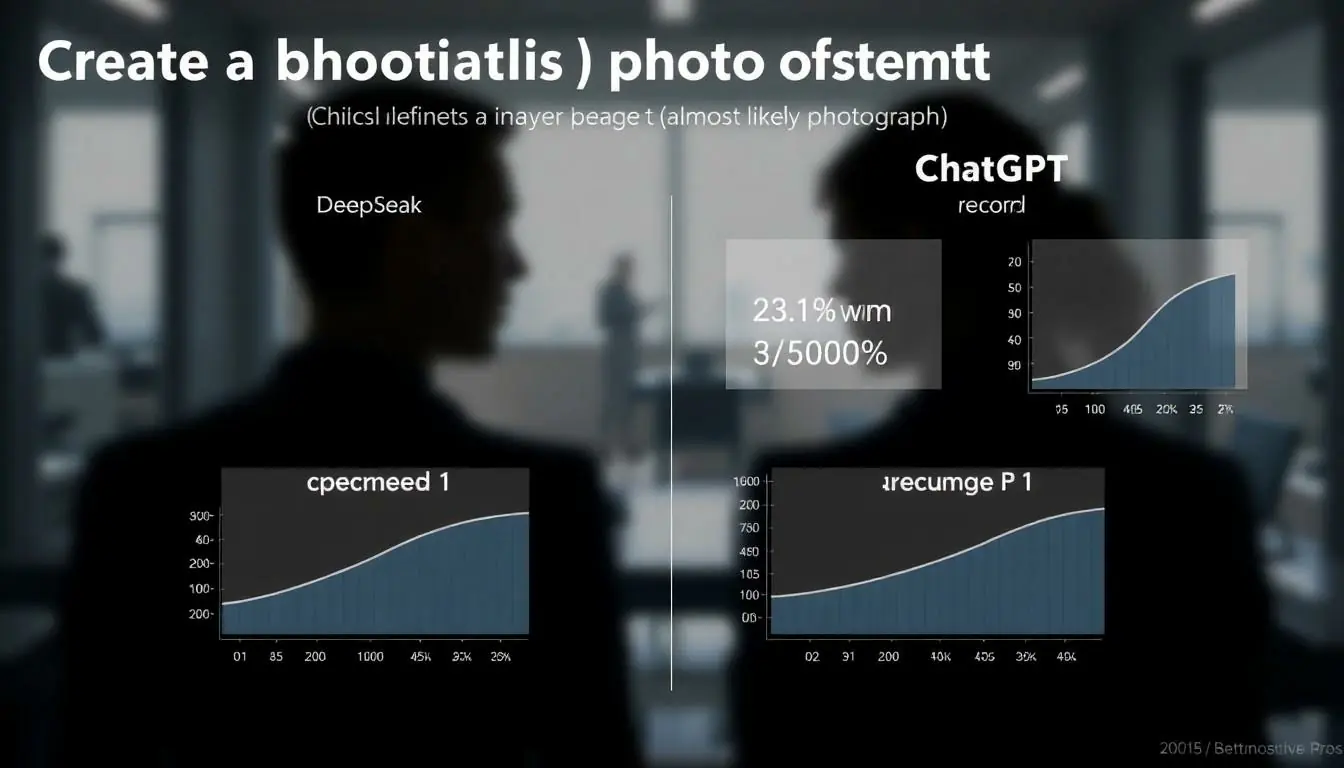In the ever-evolving world of AI, accuracy is king, and two contenders have entered the ring: DeepSeek and ChatGPT. Picture this: one’s a seasoned detective with a magnifying glass, and the other’s a witty sidekick armed with a smartphone. Both claim to have the answers, but which one’s got the sharper eye for detail?
Table of Contents
ToggleOverview of DeepSeek and ChatGPT
DeepSeek employs advanced algorithms to analyze data and uncover insights. This platform prioritizes accuracy by leveraging a vast database to ensure precise results. In contrast, ChatGPT focuses on conversational engagement, using its language model to simulate dialogue and provide responses.
DeepSeek excels in detailed tasks through its systematic approach. It retrieves specific information, making it suitable for users seeking data-driven results. Users find its accuracy particularly beneficial for analytical applications. ChatGPT, although effective in generating human-like text, occasionally sacrifices precision for conversational fluidity.
Accuracy is a key differentiator between the two systems. DeepSeek’s design ensures reliability in output, especially in technical domains. ChatGPT, however, might produce more generalized information due to its emphasis on language generation rather than data retrieval.
Both platforms serve distinct purposes that cater to varying user needs. When a user prioritizes accuracy above all, DeepSeek remains the better choice. Alternatively, users looking for engaging conversations often turn to ChatGPT for its responsiveness and adaptability.
Evaluating their respective strengths reveals how users can choose the best tool for specific tasks. DeepSeek’s focus on precise, detailed information contrasts with ChatGPT’s conversational style. Choosing between them depends on whether the user values accuracy or interaction in their AI experience.
Accuracy Metrics in AI Models

Accuracy metrics provide essential insights into how AI models, like DeepSeek and ChatGPT, perform in their tasks. By understanding these metrics, users can make informed decisions based on their specific needs.
Precision and Recall
Precision measures the number of true positive results divided by the total positive results predicted by the model. DeepSeek often demonstrates high precision, offering users reliable and accurate data outcomes. Recall, on the other hand, assesses the number of true positive results against the actual positive cases. In this regard, DeepSeek excels, capturing a significant proportion of relevant data. ChatGPT prioritizes generating conversational outputs, which can affect its precision. It may provide less accuracy in specific queries, sometimes sacrificing precision for dialogue fluidity. Overall, DeepSeek tends to deliver higher precision and recall rates, making it preferable for users requiring detailed data insights.
F1 Score Comparison
The F1 score balances precision and recall, serving as a single metric to evaluate model performance. Typically, DeepSeek achieves a higher F1 score compared to ChatGPT. This higher score signifies better overall accuracy in handling detailed analytical tasks. ChatGPT’s strength lies in conversational capabilities, which may lower its F1 score due to a trade-off between precise information and engaging dialogue. This distinction emphasizes that while ChatGPT performs well in generating human-like text, DeepSeek remains superior for tasks that prioritize accuracy and detailed information, particularly in analytical contexts.
DeepSeek’s Approach to Accuracy
DeepSeek emphasizes accuracy through its specialized algorithms and methodologies. This platform uses advanced techniques to process large datasets, allowing for nuanced insights. Algorithms analyze information with precision, prioritizing detailed assessments for technical tasks. Methodologies combine statistical practices with domain expertise, enhancing reliability in data-driven outcomes.
Algorithms and Methodologies
Algorithms form the backbone of DeepSeek’s accuracy strategy. DeepSeek employs machine learning models that sift through vast information banks to identify relevant patterns. The system uses these patterns to provide context-rich insights. Analytical methods integrate multiple variables, enhancing the depth of analysis. This structured approach addresses specific queries effectively, ensuring users receive detailed and relevant information.
Data Training and Validation
Data training is crucial for DeepSeek’s overall performance. The system utilizes a diverse array of datasets, ensuring comprehensive exposure to various subjects. Rigorous validation processes verify the accuracy of outputs, fostering trust in results. Each dataset undergoes meticulous evaluation, allowing the system to refine its algorithms continuously. This disciplined training framework enables DeepSeek to achieve high standards in accuracy, making it a reliable choice for data-centric needs.
ChatGPT’s Accuracy Assessment
ChatGPT employs various natural language processing techniques for generating responses. Its architecture utilizes transformers, which facilitate understanding context and generating coherent text. This model excels at simulating human dialogue, allowing it to engage users effectively. However, its reliance on language generation sometimes leads to inaccuracies in specific queries. Identifying nuanced contexts can challenge ChatGPT, resulting in potential misunderstandings.
Natural Language Processing Techniques
Natural language processing techniques define ChatGPT’s operational capabilities. It begins with tokenization, breaking down sentences into manageable units. Contextual embeddings follow, enabling the model to understand meanings based on surrounding text. Generative pre-training plays a crucial role, allowing the model to learn language patterns from extensive datasets. Fine-tuning on various domains enhances performance in specific applications. These methodologies foster fluid conversations, yet they may divert focus from achieving precise factual accuracy.
Limitations and Improvements
Despite its strengths, ChatGPT faces limitations in accuracy and specificity. Sometimes, users receive generalized information instead of detailed answers. The model may misinterpret complex queries due to its language-centric design. Ongoing improvements target these shortcomings, including enhanced datasets and more robust training techniques. Developers focus on refining algorithms to boost precision while retaining engaging dialogue. Continuous updates aim to address its performance gaps and adapt to user needs, fostering a better balance between conversational fluidity and accuracy.
Comparative Analysis
This section evaluates the accuracy of DeepSeek and ChatGPT by examining their performance in real-world scenarios and exploring user experiences.
Performance in Real-World Scenarios
DeepSeek consistently excels in analytical tasks. Its advanced algorithms effectively analyze large datasets, yielding high precision and recall. Users often find that the system provides reliable insights, particularly in technical fields. ChatGPT, while adept at conversational engagement, may struggle with accuracy in specific queries. Its language generation can lead to generalized responses, resulting in imprecise information when details matter. Regular statistical evaluations, like the F1 score, typically favor DeepSeek for analytical tasks due to its robust methodologies. Situational demands dictate the choice between the two systems, as users leverage DeepSeek for accuracy and ChatGPT for conversational longevity.
User Experience and Feedback
User experiences reveal distinct preferences based on engagement and accuracy needs. Many users appreciate DeepSeek for its ability to deliver context-rich insights and detailed results. Trust in the outputs builds through rigorous data training and validation processes. In contrast, ChatGPT garners praise for its conversational fluency and ability to simulate human-like dialogue. Feedback highlights that while users enjoy engaging interactions, they may encounter risks of imprecision in nuanced situations. Ultimately, the choice hinges on a user’s specific requirements, whether valuing accurate data analysis or engaging conversational exchanges.
DeepSeek and ChatGPT serve distinct purposes in the realm of AI. DeepSeek stands out for its accuracy and depth in analytical tasks, making it a go-to choice for users who need reliable data insights. Its advanced algorithms and rigorous validation processes ensure high precision and trustworthiness.
On the other hand, ChatGPT excels in creating engaging conversational experiences but may sacrifice accuracy for fluidity. This trade-off can lead to generalized responses that lack the detail some users require. Ultimately, the decision between these two systems depends on individual needs—whether one prioritizes precise data analysis or prefers dynamic conversational interactions. Each has its strengths, and understanding these differences can guide users toward the right choice for their specific requirements.





